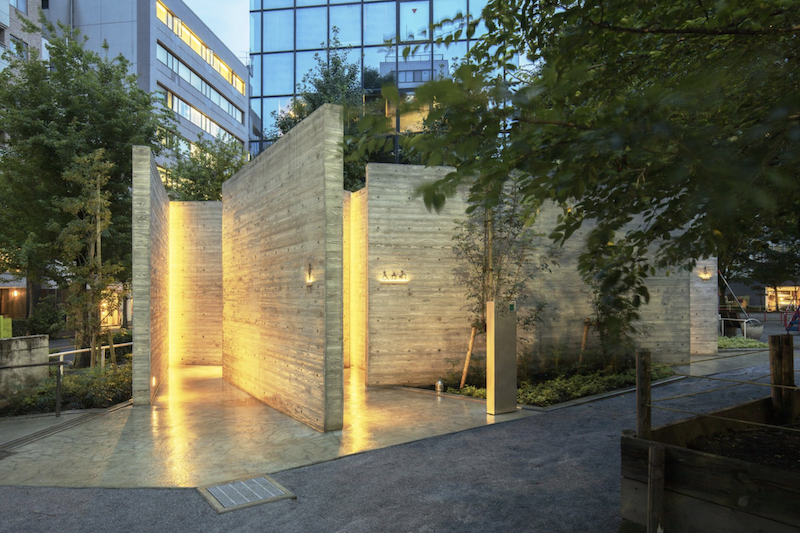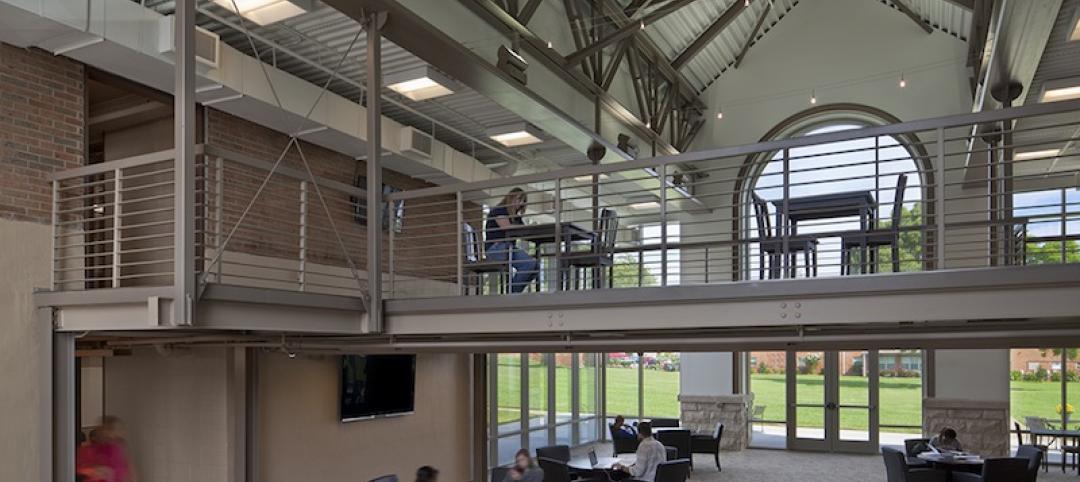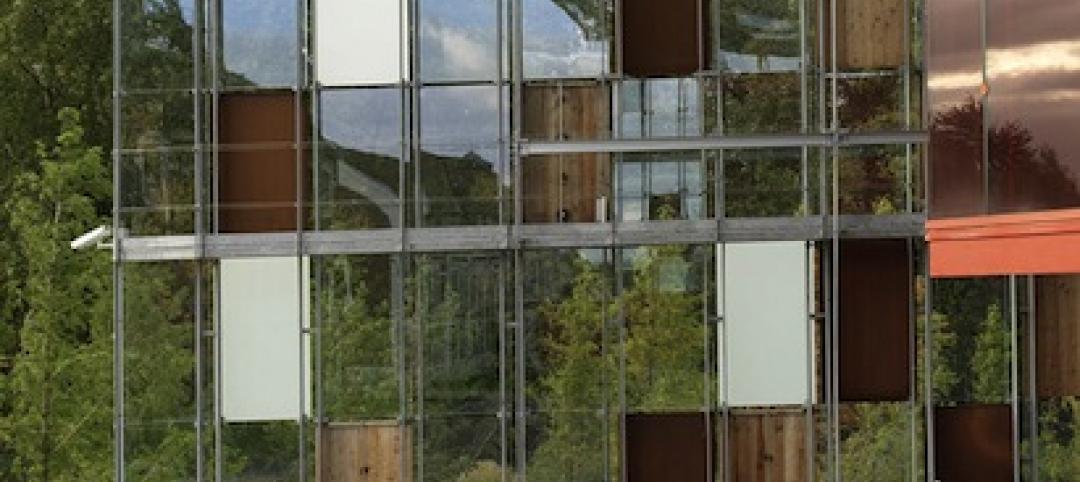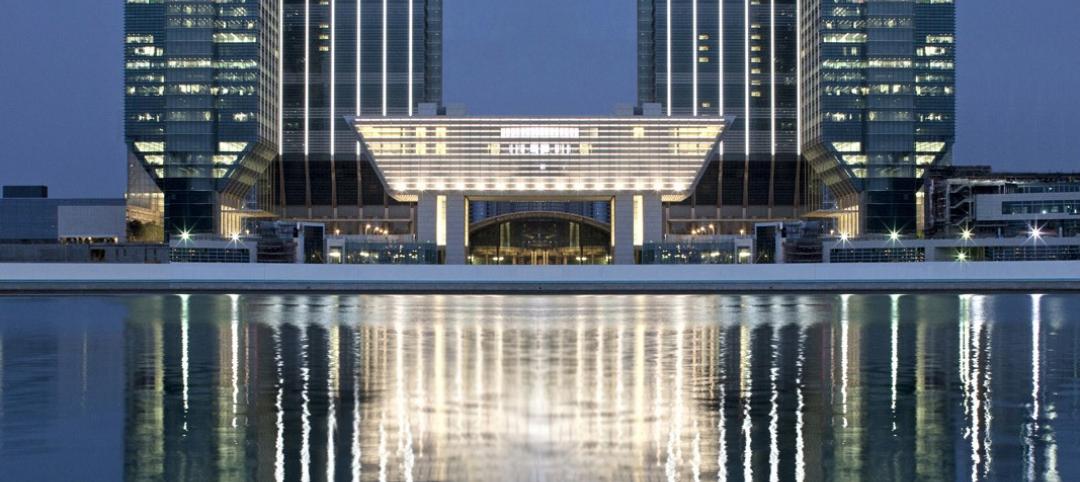When it comes to toilets, nobody does them quite like Japan. Often times equipped with lights, multiple settings, and remote controls with more buttons than most modern day television remotes, Japan looks at toilets as a symbol of its world-renowned hospitality culture.
But even in Japan, the stigma surrounding public toilets exists; they can be dirty, stinky, and a place where one wants to spend as little time as possible. But now, thanks to The Tokyo Toilet project, 16 designers and architects from around the world are redesigning 17 public toilet locations throughout Shibuya to make it a much more pleasant experience when nature calls away from home.
Five toilet locations, including two from Pritzker Prize-winning architect Shigeru Ban, have already opened on July 31 and Aug. 7. Shigeru Ban’s designs, located in Yoyogi Fukamachi Mini Park and Haru-No-Ogawa Community Park, feature an all glass design that allows people to see from the outside if the restroom is clean, as well as if anyone is currently inside. Once a stall is locked, the glass turns opaque. At night, the restrooms light up like lanterns in the park.
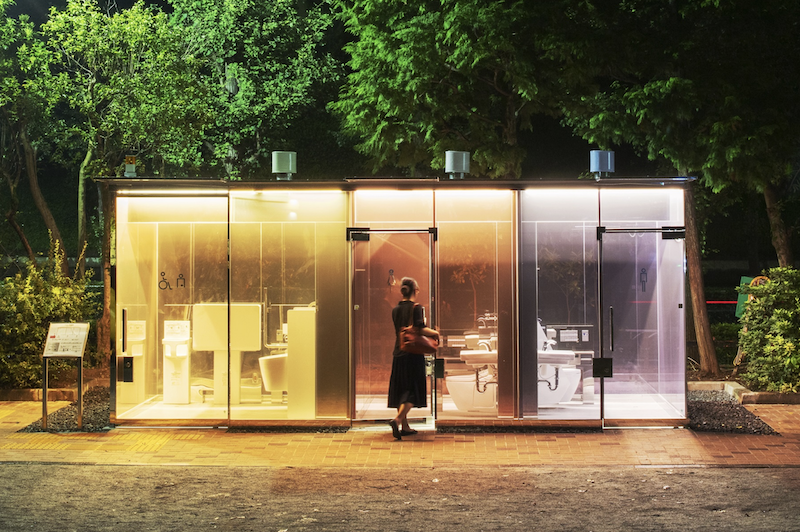 Yoyogi Fukamachi mini park clear glass.
Yoyogi Fukamachi mini park clear glass.
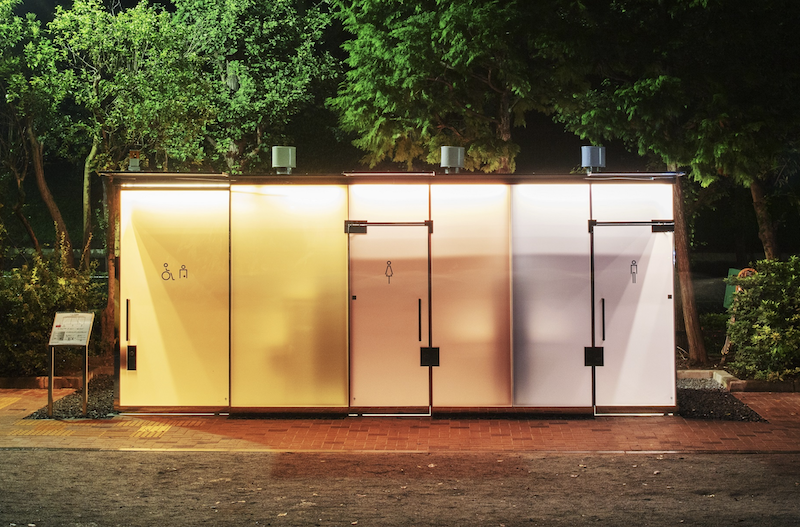 Yoyogi Fukamachi mini park opaque glass.
Yoyogi Fukamachi mini park opaque glass.
The restroom located in Ebisu East Park, designed by architect Fumihiko Maki, functions as both a public restroom and as a public space that serves as a park pavilion equipped with a rest area. A fourth restroom, located in Higashi Sanchome and designed by product designer Nao Tamura, features a completely red exterior with a design inspired by Origata, a traditional Japanese method of decorative wrapping. The restroom includes three separate spaces to redefine the way a public bathroom establishes personal space.
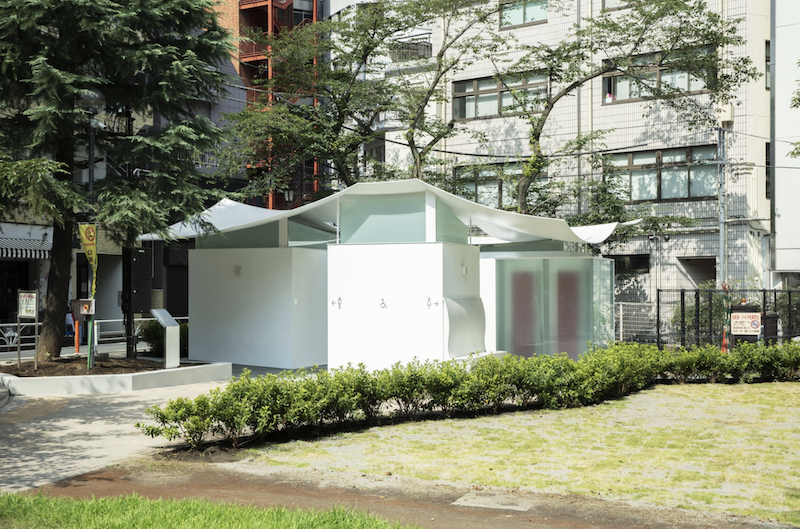 Ebisu East Park.
Ebisu East Park.
The fifth restroom, located in Ebisu Park and designed by interior designer Masamichi Katayama/Wonderwall, takes its inspiration from a Kawaya, a hut that stood over a river. The purposefully ambiguous space is simultaneously an object and a toilet by randomly combining 15 concrete walls. The spaces between the walls lead users into three different areas designed for men, women, and everyone.
All of the facilities will be maintained by the Nippon Foundation, the Shibuya City Government, and the Shibuya Tourism Association. The remaining facilities are tentatively scheduled to open between Sept. 7, 2020 and the end of 2021.
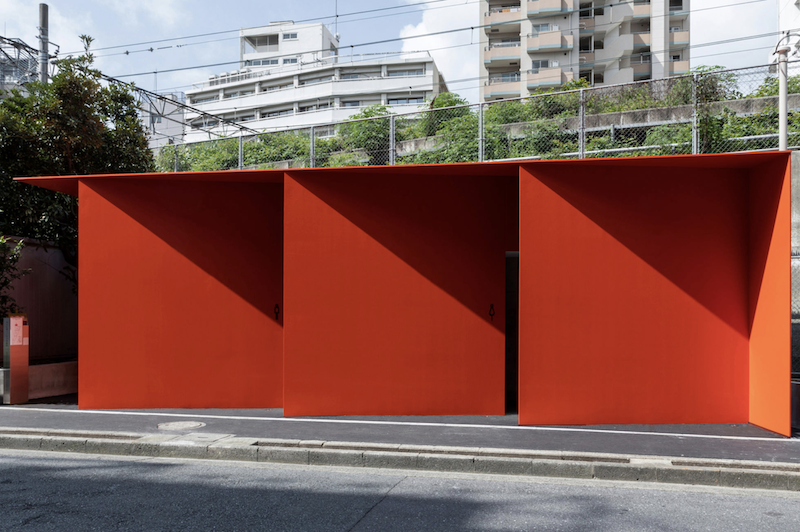 Higasi Sanchome.
Higasi Sanchome.
Related Stories
| Dec 16, 2013
Helene Combs Dreiling, FAIA, inaugurated 2014 AIA President
Helene Combs Dreiling, FAIA, executive director of the Virginia Center for Architecture, was inaugurated as the 90th president of the American Institute of Architects (AIA) during ceremonies held on December 12th at the Andrew W. Mellon Auditorium. She succeeds Mickey Jacob, FAIA, in representing nearly 83,000 AIA members.
| Dec 13, 2013
GRW acquires West Virginia design firm Chapman Technical Group
GRW is expanding its capabilities through the recent acquisition of Chapman Technical Group, a 36-person West Virginia-based firm.
| Dec 13, 2013
AIA, MIT issue joint report on impact of design on public health
The research looks at the health of eight U.S. cities and lays out a path for translating the research into meaningful findings for policy makers and urban planners.
| Dec 11, 2013
Wyndham unveils hotel prototype for its Hawthorn Suites chain
The extended-stay hotel prototype reduces development costs by 46% for franchisees and enhances the overall guest experience.
| Dec 10, 2013
16 great solutions for architects, engineers, and contractors
From a crowd-funded smart shovel to a why-didn’t-someone-do-this-sooner scheme for managing traffic in public restrooms, these ideas are noteworthy for creative problem-solving. Here are some of the most intriguing innovations the BD+C community has brought to our attention this year.
| Dec 9, 2013
Tips for designing higher education's newest building type: the learning commons
In this era of scaled-down budgets, maximized efficiencies, new learning methods and social media’s domination of face time, college and university campuses are gravitating toward a new space type: the learning commons.
| Dec 9, 2013
Does technology help or hinder innovation?
Whether digital technology will help or hinder workplace insights remains a topic of ongoing debate. FastCo.Design features insights from business scholars on both sides of the issue.
| Dec 6, 2013
French concert hall includes integrated musical elements [VIDEO]
La Métaphone, a concert hall in Ognies, France, is a 1,980-sm facility with the unique characteristic of being a structural musical instrument. The solar-powered building incorporates musical elements in its walls, which can be played by musicians inside or outside the facility.
| Dec 6, 2013
Goettsch Partners selected 2013 AIA Chicago Firm of the Year
Architecture firm Goettsch Partners (GP) has been named the 2013 Firm of the Year, as conferred by the Chicago chapter of the American Institute of Architects (AIA Chicago). The award is the highest honor a firm can receive from the chapter.
| Dec 5, 2013
Maximizing the impact of online marketing
Because most professional services firms exist to help their clients reduce risk and navigate an uncertain future, they tend to approach the world of online or digital marketing with some caution. Here are four tips for maximizing the impact of online marketing.


